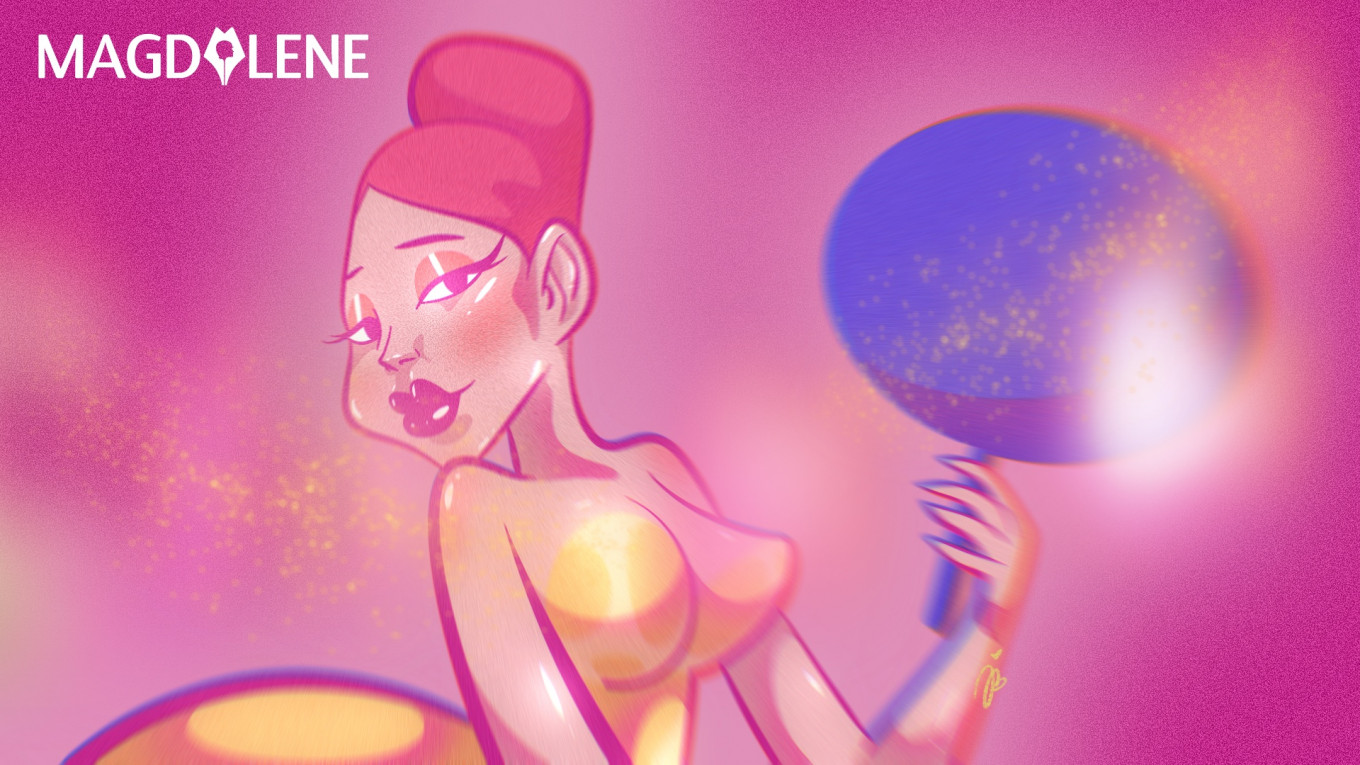Popular Reads
Top Results
Can't find what you're looking for?
View all search resultsPopular Reads
Top Results
Can't find what you're looking for?
View all search resultsBeauty contests no more
"The prevailing beauty ideology needs to be dismantled.”
Change text size
Gift Premium Articles
to Anyone
A
few months ago, six Miss Universe Indonesia (MUID) contestants filed sexual harassment complaints with the Jakarta Police. According to CNN Indonesia, MUID’s organizers allegedly asked contestants to strip off behind makeshift partitions for “body checks,” with no notice nor consent from them.
During the body-checking process, five contestants were photographed topless. Desak Putu Ratih Widiartha, one of the contestants, said they were instructed to strike inappropriate poses, including ones revealing their bottoms. "It felt like [someone] was trying to sneak a peek at my bottom. I was alarmed and horrified," said Ratih.
Another contestant, Priscila Jelita, said she felt intimidated and humiliated during the body-checking process. When the organizer demanded that she take off her top, she tried to cover her breasts, but was scolded instead.
“I was told I’m not proud of my own body. I felt a bit depressed, but I couldn't do anything because I was worried that [the body check] was part of the assessment,” said Priscilla.
Mellisa Anggraini, the attorney for the Miss Universe Indonesia 2023 finalists, said that PT Capella Swastika Karya, which owned the MUID license, argued that the body checks were designed to reveal any scars, cellulite or tattoos. These are considered "imperfections."
But not long after the allegations went viral, Miss Universe decided to end the contract with Capella Swastika Karya and its national director, Poppy Capella.
Through its official Instagram account, the Miss Universe organization said that the sexual harassment cases that occurred at MUID clearly did not meet the brand’s standards, ethics or expectations as outlined in the franchise guidebook and code of ethics.
Full of objectification
L. Ayu Saraswati, professor in the Department of Women's, Gender and Sexuality Studies at the University of Hawaii, in the United States, expressed her concern over the harassment. She said that sexual harassment at beauty contests further confirmed the objectification of women.
From their inception, beauty contests have relied on the objectification of women to maintain their existence. The image of women is reduced to a commodity or object that is bought and sold. The whole premise of a beauty contest lies in the fact that women need to be looked at, evaluated, objectified and even sexualized.
“Women are made to line up, then rated based on their looks. Women are reduced to numbers, which makes them vulnerable to violence," Ayu told Magdalene.
Objectification as an ingrained problem in beauty contests is nothing new. According to Racked, the first beauty contest appeared in 1854 when US showman, businessman and former mayor PT Barnum created several shows and circuses that involved women. Barnum was the inspiration behind the movie The Greatest Showman starring Hugh Jackman.
In his beauty contests, Barnum had women appear on stage, line up, then had them judged by the audience based on the women’s physical beauty. It is a concept that remains the blueprint for today’s beauty contests. The beauty contests then spread into carnivals and other working-class entertainments where a woman's physical appearance was the main attraction.
Barnum also created a photography beauty contest. In contrast to live beauty contests, here, the women were judged based on the photos they submitted. These beauty contests then quickly spread among the middle and upper classes. It was even used as a marketing tool to promote newspapers.
Six decades passed before the modern beauty contests began. The first of these was “Atlantic City Inter-City Beauty Pageant” (later changed to Miss America), a beauty contest that began in 1921 to attract more tourists to Atlantic City during the summer.
The contest winners were determined by jury evaluations and audience applause, which contributed to 50 percent of the final vote. The winner of the contest received a trophy, and based on their performance in the popularity contest, they could be considered to participate in a parade the following day called the “Bather's Revue”. The parade featured around 200 women in swimsuits.
With growing popularity, beauty contests became more commercialized and not just in the US, but also around the world. The two modern beauty contests were initiated by Miss World in 1951 and Miss Universe in 1952.
A problematic ideology
In 2019, Zozibini Tunzi from South Africa won the Miss Universe title. In her victory speech, she shared the story of her upbringing, where women with her skin color (dark-skinned) were never considered beautiful. She hoped that her victory signified a change in the beauty contest; that girls like her were just as beautiful and that they could compete on the world stage.
It was a beautiful speech. Indeed, her win was a turning point in the world of beauty contests. By that time, beauty contests had made strides to embrace women of color. But is this progressive enough? The answer is no.
No matter how progressive the message may sound, beauty contests always rely as their root the oppression of women – the ideology of beauty, Ayu said. This ideology centers around women’s appearance as their only asset. Unfortunately, this ideology is made worse by destructive beauty standards–that beautiful women must have, for example, bright skin, be slim, have no cellulite, no wrinkles and be youthful-looking.
"The only different thing from beauty contests, from what I can see, is the outfits. But the physical features [of the contestants] are all the same. There is even colorism at play. Black women with lighter skin will be preferred," said Ayu.
When a woman's body or natural appearance does not match ideal beauty standards, women have to cover up the “ugliness” and improve their overall looks. Efforts to control women's bodies are inevitable. This can be seen from the proliferation of the trends of strict diets and plastic surgery.
“Women are encouraged to modify, improve and change their bodies or natural appearance to conform to these ideal beauty standards. This makes them invest more time, energy, money and emotional resources in something that is even impossible to achieve," added Ayu.
What is worse, beauty ideology does not stop with physical looks. It even dictates women’s attitudes and mannerisms. In an article published by the Red Elephant Foundation in Medium, beauty ideology in beauty contests also dictates what can be considered as “ideal femininity”. Women are expected to gracefully walk the stage, answer questions in a non-threatening manner and smile like nothing is happening.
Not only are their physical looks judged and criticized, women’s mannerisms and attitudes are also scrutinized. The implied message is that women must behave appropriately so they can be accepted by society.
With this kind of ideology, women are discriminated against based on their age, weight, skin color, youth and other factors. “Women who fit this beauty standard will have more access [to the beauty contests]. This is the problem,” said Ayu,
“That's why it's not enough to simply make beauty contests more inclusive. They must be eliminated altogether, and the prevailing beauty ideology needs to be dismantled.”
---
The original version of this article was published in Indonesian in Magdalene, an online magazine that educates, empowers and pushes for a more equal society through solution-driven journalism.











